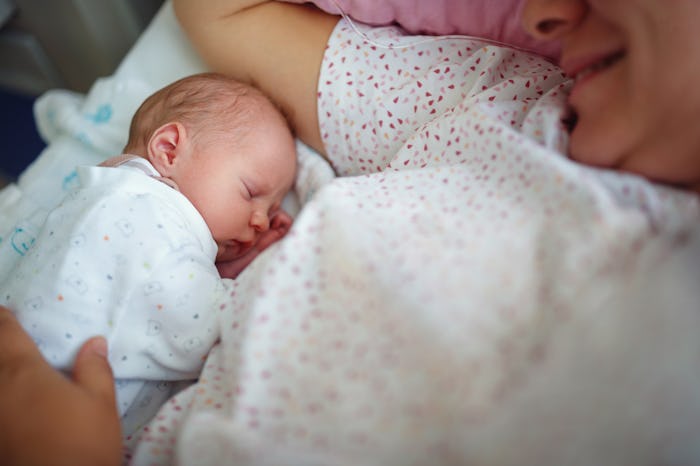It's an idiom many people, especially child-free women, dread hearing and undoubtably cringe when they do. "Unless you're a mother, you can't understand." It comes off as smug, dismissive, and myopic, especially when it pertains to something that renders the phrase so demonstrably false, like experiencing love or compassion. I avoid this turn of phrase for those very reasons. But in some instances, when we get down to it, it's absolutely true: unless you're a mom you can't understand. I'm not going to apologize for knowing that to be true. And not only is it true, but I contend that it's in and of itself completely un-problematic. I will, however, concede there's a lot to unpack when it comes to the why.
Like I said, this is a phrase and, indeed, a concept I largely steer clear of, simply to avoid any implication that I, a mother, am a little too conceited about my choice and ability to procreate. Certainly, people claiming motherhood alone gives you the super-power to feel the full range of human emotions and other such obviously untrue assertions happens, and too often. That said, I feel the time I most often hear, "Unless you're a mom you can't understand" is, in fact, when people are talking about experiencing motherhood. So... where's the lie?
Motherhood is an identity and experience that encompasses your entire being. It's not that being a mother is all there is to you, but there's no aspect of who you are that will not be affected, to varying degrees, by motherhood. And the mothering of children itself is exhausting. Often it's a 24/7, full-contact sport, even when you're not with your children and even when they're sleeping. So it's simply a statement of fact that someone who is not a mother cannot understand what motherhood feels like. It's the same way I — a white, cisgender woman — cannot know what it feels like to be a trans man of color. Not only is it completely understandable that someone who has not lived a particular experience or identity cannot grasp the full depth and scope of what that life is and means, it is, frankly, sort of annoying for them to be irked by such a matter-of-fact statement. It's not a value judgment, it's just a fact.
And yet I understand when people bristle at this fact, and, moreover, fight against it as being a fact. As with so many things, this, I believe, comes down to the limited roles we allow and celebrate among women. Because after a certain age (which varies depending on where you are or whom you talk to), women are expected to be mothers. And if they're not society collective wonders why not. If you don't believe me, just ask Jennifer Aniston, who epitomizes the absurdity of this phenomenon.
Now don't get me wrong: motherhood is great. Or, rather, motherhood is great for me. Indeed, it is one of the many great things a woman can do... except you wouldn't necessarily know that because the many other great things women can do aren't as frequently discussed and motherhood is put up on a pedestal. This absolutely sucks, because those other things? They're super cool! And the pedestal sucks because motherhood isn't great for a whole lot of people. For many women it's a horrible decision, which speaks neither to the virtues of motherhood or those who would eschew the experience. Rather it speaks to the idea that women are individuals with individual wants, needs, and goals.
This fetishized version of womanhood and motherhood — which intertwines one and the other until they are more or less indistinguishable — is the backdrop for, "Unless you're a mom you can't understand." Even when it's said in complete neutrality, society has loaded motherhood down with so much baggage that something that's mean to mean "This is my unique lived experience" is instead heard as and, sadly, often intended to mean "My experience has value and yours does not."
You're not a bad person or failed woman if you don't understand the particular experience of motherhood any more than if you don't don't understand the particular experience of being an astronaut.
So what's to be done? Some may say that even the appearance of buying into this mentality is a good idea. But... does avoiding it all together tacitly state, "Yes, motherhood is the best possible thing a woman can do, so let's not upset all the women who aren't moms"? And doesn't it do a disservice to the moms out there who would like to gather around the acknowledgment that we understand each other in a way that people who have made different choices do not?
I think there's value in owning motherhood as a unique, female experience... but one of many female experiences, none of which dictate the value of our individual or collective womanhood. You're not a bad person or failed woman if you don't understand the particular experience of motherhood any more than if you don't don't understand the particular experience of being an astronaut. The individual choices we make may impact our own concept of who we are as women but say nothing about that larger, shared experience of identifying female.
So, in the spirit of owning and celebrating choices and owning my own experiences, I can confidently say that unless you're a mom you don't understand what it means to be a mom. Now, please tell me something I don't understand, because I would love it if we could all learn from each other.
